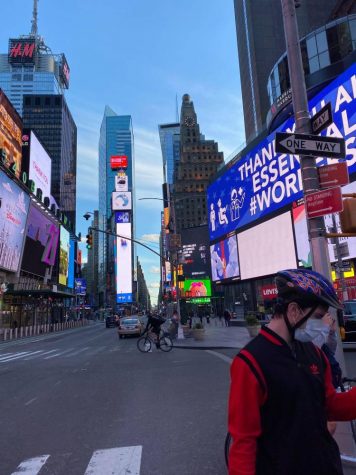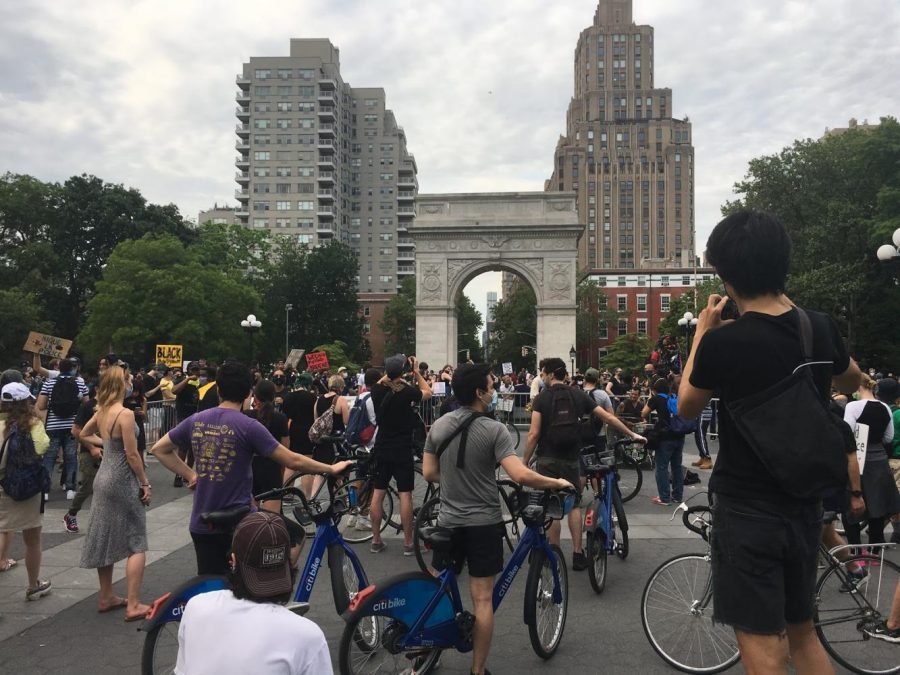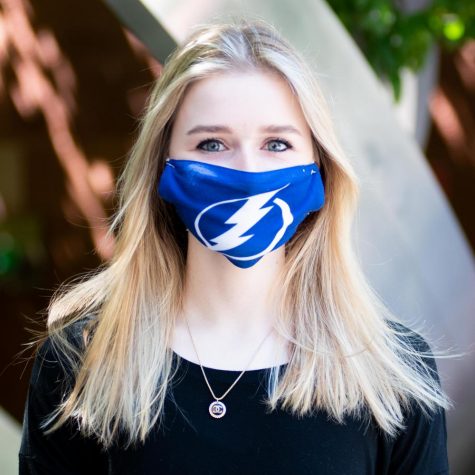As New York City became the epicenter of the coronavirus in March and NYU went online for the rest of the semester, many students left the city. But some students continued to call NYC home for the next few months, whether it had to do with their families’ locations, commitments they were tied to or having more secure housing in the city.
Tisch sophomore Regina Castellanos has lived in NYC since she was 14 and noticed that the city began to drastically change when spring break for the Spring 2020 semester began.
“People were out in masks, people were sort of paranoid, people were looking at each other like it was the plague, you know?” Castellanos said, revealing that she wasn’t allowed to leave her family’s apartment until May. “I literally didn’t have a breath of fresh air for two months.”
CAS junior Alec Shoup Herrera had a similar experience, having lived in the city since he was two years old.
“The peak of quarantine changed the city into a different place I’ve never seen before,” he told WSN through email. “The most telling difference between the peak and now is that now you can walk past someone on the street while being somewhat close to them, but during the peak if you were to walk past someone you’d avoid them like the plague.”

Castellanos found it difficult to stay cooped up in an apartment all day, but additionally traumatized being in the city as the number of deaths rapidly increased.
“In April, it was literally morgues all around the city, the crime rate has gone up so much, it’s crazy,” she said. “It was a really depressing moment for New York City, I think everyone was just staying in.”
Shoup Herrera agreed that downtown was a particularly scary place to be at that time.
“During peak quarantine, NYC felt like a warzone. You’re usually used to hearing cars and drunk people out on the street, but during the peak all you would hear was ambulances,” he said. “Looking back, it was traumatizing constantly hearing those ambulance sirens, because that was the only thing you would hear.”
New York City became an especially intense environment when Black Lives Matter protests began at the end of May. CAS junior Kritima Lamichhane arrived at the beginning of July, experiencing the tail-end of both the virus and the first wave of marches.
“I didn’t do any protests here in the city, I was just a little scared,” she said. “I work in SoHo and I remember that a lot of stores were still boarded up, and I remember they started opening and un-boarding after July 4th.”
When asked how her mental health was affected by the intense summer, Castellanos admitted she had a hard time.
“There was just no positivity, there was nothing being said that was positive on the news,” she said.
Shoup Herrera agreed, emphasizing the toll of trauma on his physical health as well.
“From March through May, the entire city’s mood was depleted,” he said. “The days felt like the exact same and my eating habits plummeted. I would only eat 1 meal a day and throughout these two months.”
Fortunately, Lamichhane experienced a much more positive New York by July.
“I think New York gets a rep for not caring about anyone but themselves,” she said. “But then when I saw things that weren’t ‘normal,’ with both the protests and with corona, and wearing masks and stuff, I feel like people were really just in it for each other.”
In terms of the future, all three students had different views. After her experiences in New York City throughout the lifecycle of the pandemic, Castellanos urges newcomers to quarantine.
“Literally people who lived in the city were stuck in their apartments for two months straight,” she said. “So if we could do it for two months straight, people can do it for two weeks.”
Lamichhane expressed her fears about dining, discussing her concern for restaurants that might lose business.
“I really hope it doesn’t get bad because I know they’re not doing indoor dining, so when it gets cold I’m really sad that that’s when New York is gonna seem like it’s on pause,” she said.
With the downward trend of coronavirus related deaths in NYC, Shoup Herrera was optimistic. But looking ahead, particularly as more NYU students return to campus, he remains cautious.
“I’m expecting cases to rise because of NYU kids coming into the city but I really hope that won’t be the case and that everyone will prove me wrong,” he said. “I just really want everyone to understand how devastating things can get if rules aren’t followed and that so many people’s lives are at stake.”
Email Addison Aloian at aaloian@nyunews.com.
























































































































































